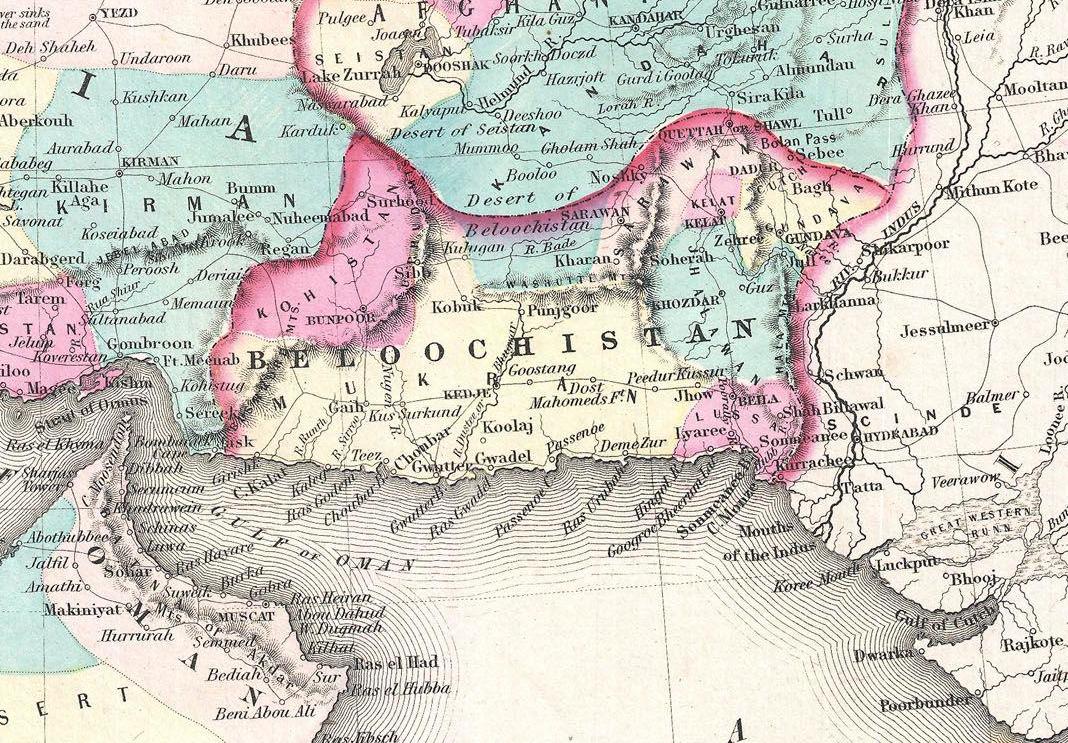Various regional actors are closely watching recent developments in Iran. Among them, the secular Free Balochistan Movement (FBM), led by Hyrbyair Marri, has issued a statement suggesting that the current instability could present a significant opportunity for the Baloch national independence cause.
In a communication dated June 15, the FBM articulated its perspective, emphasizing that the evolving situation necessitates unity and strategic action from the Baloch people. "Israel's decisive military actions against the Iranian regime are not only encouraging but also represent a positive sign for the Baloch people, who have long suffered under Iranian colonialism," the FBM spokesperson stated.
The movement posits that a coalition of non-Persian ethnic groups within Iran, which it claims are militarily organized, could potentially challenge the current Tehran regime. The statement specifically mentioned Kurdish armed groups such as the Free Life Party of Kurdistan (PJAK), the Democratic Party of Iranian Kurdistan (KDPI), Komala, and the Kurdistan Freedom Party (PAK), as well as the Baloch Army – an umbrella organization led by the Balochistan Liberation Army (BLA) – and the Ahwazi National Resistance. The FBM noted the absence of comparable organized militarized anti-regime groups among the Persian population.
The FBM urged the Baloch nation to "set aside all partisan, group-based, and individual interests and preferences, and adhere to the core principles and regulations of the Baloch independence movement and collective national interests." The statement stressed that this period represents a "decisive phase" and a "rare and significant opportunity" if the Baloch can consolidate their strength into a unified front.
A central theme in the FBM's message was the perception of shared adversaries. The spokesperson asserted, "It is a clear fact that Israel is not an enemy of the Baloch nation. On the contrary, extremist and fundamentalist states like Iran and Pakistan are common enemies of both Israel and the Baloch people." The movement commended Israel's actions as a form of resistance against the "Iranian state's expansionism and terrorism."
While viewing external actions against Iran as indirectly favorable, the FBM cautioned against passive reliance on foreign intervention. "We must also accept the harsh reality that sitting idly by, hoping that some global power will intervene to liberate the Baloch nation, is both illogical and naive," the statement read. Instead, it called for building relations with other oppressed nations within Iran and prioritizing "collective national interests, the requirements of the freedom struggle, and the independence of a united Balochistan."
The FBM also mentioned its preparatory work, including a "Democratic Transition Plan for Iran" and the "Balochistan Liberation Charter," which outlines a vision for the governance of an independent Balochistan. The ultimate goal, according to the movement, is "the Baloch nation's right to govern its land with complete autonomy and freedom," distinct from mere regime change or internal reforms.
Iranian Balochs and the Free Balochistan Movement
The Baloch people are an ethnic group that primarily inhabits the historical region of Balochistan, which is today divided among Iran, Pakistan, and Afghanistan. Within Iran, they are concentrated in the Sistan and Baluchestan provinces, a vast and arid region bordering Pakistan and Afghanistan. Predominantly Sunni Muslims in a Shia-majority country, Iranian Balochs maintain a distinct cultural and linguistic heritage. The Balochi language belongs to the Iranian branch of the Indo-European language family.
For decades, the region has faced significant socio-economic challenges, including high rates of poverty, underdevelopment, and limited access to resources and opportunities. Reports from human rights organizations and Baloch activists frequently cite concerns over discrimination, political marginalization, and heavy-handed security measures by the state. These long-standing grievances contribute to a complex and often tense relationship between the Baloch population and the central Iranian government.
The Free Balochistan Movement (FBM) consistently advocates for the rights and self-determination of the Baloch people, including those residing in Iran's Sistan and Baluchestan provinces. The FBM characterizes the situation of Iranian Balochs as one of "Iranian occupation" and alleges "systematic genocide." Their vision is for an independent, united Balochistan, which would encompass territories currently within both Iran and Pakistan. The FBM presents itself as a secular movement seeking to establish a sovereign Baloch state. In the context of recent events, the FBM encourages Iranian Balochs to see the weakening of the Iranian central government as a potential opening to advance their struggle for national independence, ideally in concert with other ethnic minorities facing similar challenges under Iranian rule. The movement frames its struggle as one against "Iranian colonialism" and for the restoration of Baloch sovereignty.
Map: 1855 map of Balochistan
